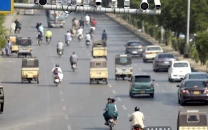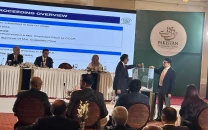Subcontinent’s lingering democratic deficit
The people of the subcontinent have not yet seen the curse of authoritarianism lifted

Ensuring democratic rule remains an elusive goal for the post-colonial Indian Subcontinent, which is still perpetuating top-down and hegemonic governance mechanisms inherited from colonial times.
Let’s first consider the situation in India, which Prime Minister Narendra Modi often euphemistically describes as the “mother of democracy”. While India has managed to preserve a civil-military balance and has held numerous cycles of elections, it has not yet become a truly democratic nation. The country remained in the grip of dynastic rule via the Congress, which became increasingly intolerant of dissenting voices, especially under the iron-grip of Indra Gandhi. While the rise of the BJP enabled Indians a chance to overcome the monopolistic hold of the Congress, the BJP relied on religiously motivated majoritarianism to solidify its chokehold over the country.
Under the leadership of PM Modi, the Indian state continues to vilify religious minorities, especially the significant Muslim population, and it has subverted major state institutions in the pursuit of making India a proudly Hindu nation. The Indian Supreme Court also green-lighted construction of a Ram temple on the site of the razed historical mosque in Ayodhya, and more recently it has endorsed the controversial revocation of Kashmir’s special status, which boosts Modi’s image as a muscular leader capable of turning India into a superpower. Despite top-down economic growth, inequality remains a major problem in the country, and India’s freedom and democracy related indicators have fallen precipitously over the past few years. Despite western nations wooing India, lured by the size of its markets, and its potential to counter-balance China, India is now widely being labeled as a “flawed democracy”, an “illiberal democracy”, and even an “electoral autocracy.”
The situation in neighbouring Pakistan is, of course, no better. The country has experienced direct military rule for decades, often abetted by generous aid from the US, first for joining Cold War alliances, then to support the Afghan jihad against the Soviets, and then to enable the US-led NATO occupation of Afghanistan after 9/11. While the country has not had another dictator since 2008, the role of the military in the political economy remains dominant, and no PM has yet been able to complete a full term in office. Imran Khan’s victory in the 2018 elections was enabled by active suppression of the ousted PML-N government. And then, when Khan fell out of favour for his ad hoc pursuit of power, he too experienced major stumbling blocks which prevented him from regaining power during the latest round of elections earlier this month. Pakistan’s emergent governance model is described using terms such as ‘hybrid regime 1.0 and 2.0’.
The state of democracy in Bangladesh is not encouraging either. The country has drastically veered off course from the secular aspirations espoused by Mujeeb-ur-Rahman. Just a few years after winning independence, Rahman was brutally murdered, and the BNP led by Zia-ur-Rahman came to the fore. Zia aligned with the Jamaat-i-Islami to consolidate his rule, but he too was assassinated. Zia’s widow, Khalida Zia, and Mujeeb-ur-Rahman’s daughter, Sheikh Hasina, played political musical chairs for several years till Hasina managed to assume power in 2009 and has since used all levers of power to decimate the opposition, enabling her to become the PM again earlier this year for the fourth consecutive term. Hasina has ruthlessly persecuted the Jamaat-i-Islami, labeling it treacherous for supporting the west wing of Pakistan during the 1971 war, motivated by her attempt to weaken the opposition. Yet, Hasina too has wooed other Islamic parties to consolidate her own rule, undermining the tolerant socio-cultural fabric of the country. Today, Bangladesh can more accurately be considered a “one party system’ rather than a democracy.
Thus, while it has been over 75 years since the subcontinent threw off the yoke of colonial subjugation, the people of this region have not yet seen the curse of authoritarianism lifted and replaced by genuinely representative governance, which respects the region’s immense ethnic and religious diversity.
Published in The Express Tribune, February 23rd, 2024.
Like Opinion & Editorial on Facebook, follow @ETOpEd on Twitter to receive all updates on all our daily pieces.
















COMMENTS
Comments are moderated and generally will be posted if they are on-topic and not abusive.
For more information, please see our Comments FAQ